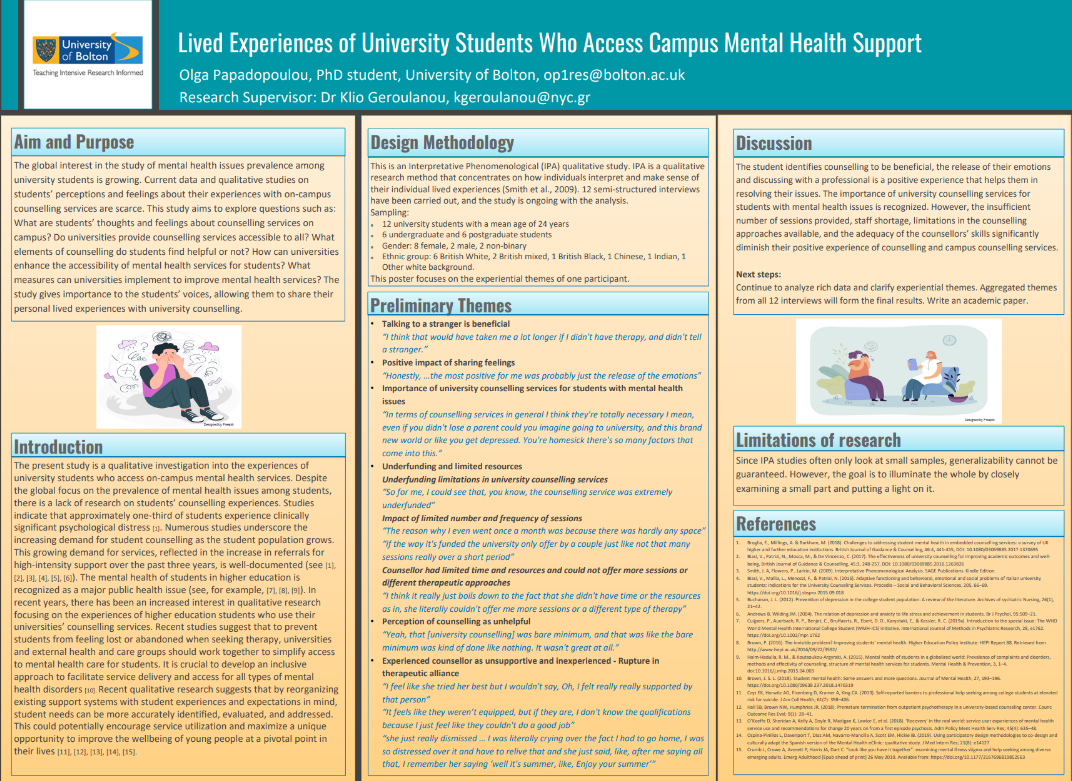
Aim and Purpose
The global interest in the study of mental health issues prevalence among university students is growing. Current data and qualitative studies on students’ perceptions and feelings about their experiences with on-campus counselling services are scarce. This study aims to explore questions such as: What are students’ thoughts and feelings about counselling services on campus? Do universities provide counselling services accessible to all? What elements of counselling do students find helpful or not? How can universities enhance the accessibility of mental health services for students? What measures can universities implement to improve mental health services? The study gives importance to the students’ voices, allowing them to share their personal lived experiences with university counselling.
Design Methodology
This is an Interpretative Phenomenological (IPA) qualitative study. IPA is a qualitative research method that concentrates on how individuals interpret and make sense of their individual lived experiences (Smith et al., 2009). 12 semi-structured interviews have been carried out, and the study is ongoing with the analysis.
Sampling:
- 12 university students with a mean age of 24 years
- 6 undergraduate and 6 postgraduate students
- Gender: 8 female, 2 male, 2 non-binary
- Ethnic group: 6 British White, 2 British mixed, 1 British Black, 1 Chinese, 1 Indian, 1 Other white background.
This poster focuses on the experiential themes of one participant.
Views expressed in this article are the views of the writer and not necessarily the views of BACP. Publication does not imply endorsement of the writer’s views. Reasonable care has been taken to avoid errors but no liability will be accepted for any errors that may occur.
